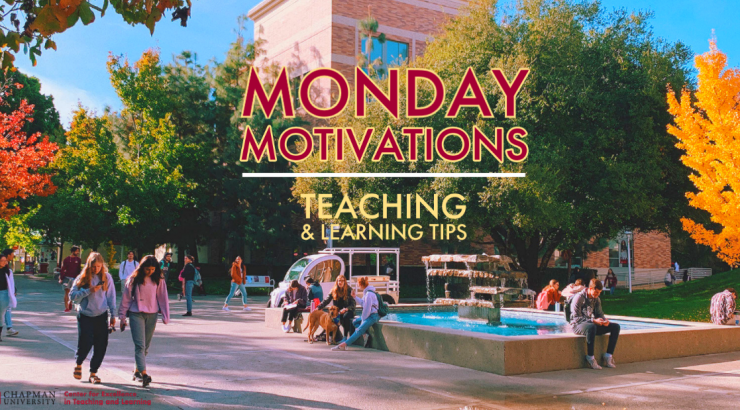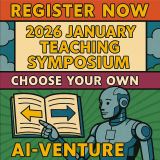
Tips for the Week of March 27, 2023
March 22, 2023
All Teaching Strategies Are Not Equal
In his book, The Missing Course, Goobler (2019) argues that while college is changing, the way we prepare college professors is not. Most graduate students are still trained primarily to conduct research, receiving little to no pedagogical training in their graduate programs. Think about your own pedagogical training. Although many instructional practices used in classrooms today have a positive impact on student learning, researchers have identified a handful of high-impact teaching strategies (HITS) that, when used regularly, have a much larger effect on student learning than others. As we kick off “Our Path to Greatness” and make academic excellence a priority, what will you do to improve your instruction? The CETL would like to challenge you to implement at least one of these HITS and see what difference it makes for student learning in your discipline.
A Meaningful Closing Act
Think about the last several moments of an average class session. Are they rushed, filled with last-minute instructions, leaving students feeling overwhelmed and confused? Or maybe they’re filled with awkward silence as you ask, “any questions?” and students avert their eyes or sneak glances at the clock. How could we make better use of these last minutes? One strategy is to end our lessons by engaging students in closing activities that help solidify what they’ve learned. Asking students to write a six-word summary, identify what’s “clear or cloudy”, or use Kahoot! to create quiz questions related to lesson concepts are a few ways to use those last moments of class more effectively by “checking for understanding, correcting misunderstandings, and putting a little fun into the process to motivate your students to make sense of what they’ve just learned” (Boryga, 2023). Give it a try – the 10 end-of-lesson strategies provided in this article are fun and easy to implement.
ChatGPT: What is it and Where Do We Go from Here?
The education community was shaken late last year when a new AI tool called ChatGPT was released. Immediately, concerns were raised about academic integrity, plagiarism, and the ethics of using an AI tool for writing, research, and other academic work. Despite these concerns, many have argued that the answer is not to fight it, and there has since been much discussion about possible uses of AI tools in the classroom, including ways to use them to support more exciting, engaging opportunities for learning. If you’re curious about ChatGPT and other AI tools and want to engage in a dialog with your colleagues about this topic, please join us for a faculty discussion on March 29th at the Orange campus.
Interested in exploring any of these ideas further or discussing how you might implement them in your own teaching practices? Is there a tip you’ve tried that you’d like to share with colleagues? Contact CETL or schedule a consultation to continue the conversation.


